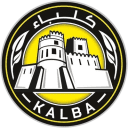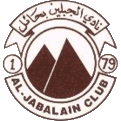Mastering the Away Game: The Intricate Planning Behind Wales' World Cup Qualifier in Kazakhstan
Discover the meticulous planning and logistics involved in Wales' World Cup qualifier against Kazakhstan, from travel arrangements to player recovery.




The Challenge of an Away Fixture
Wales' journey to Kazakhstan for the World Cup qualifier is a testament to the complexities of international football logistics. Spanning 3,000 miles across six time zones, the match on an artificial pitch in Astana Arena is a formidable challenge. However, with World Cup qualification at stake, meticulous planning is essential.
Nine Months of Preparation
The planning began nine months prior, with Wales' staff meticulously organizing every detail. From securing hotels with sufficient space and function rooms to arranging charter flights, every aspect was carefully considered. Head coach Craig Bellamy emphasized the importance of player recovery, leading to the decision to delay the return flight post-match.
Ten Weeks to Kickoff
A reconnaissance team visited Astana to ensure no surprises on game day. They photographed every corner of the stadium and hotel, assessed ticketing facilities, and compiled local knowledge on weather, traffic, and plug sockets. This detailed information formed the basis of the planning process.
Five Weeks to Go
Bellamy and his coaching staff reviewed the reconnaissance report, addressing potential issues and finalizing the schedule. Decisions on training times, media days, and commercial activities were made, ensuring every hour was accounted for. The equipment team began packing, sourcing specific gear for the artificial pitch.
Two Weeks to Kickoff
Plans were signed off, and Bellamy held a final meeting on squad selection. Medical staff monitored a wide pool of players, and emails were sent to clubs and players with instructions and reminders. A spreadsheet tracked the country's best footballers, ensuring no detail was overlooked.
Matchweek
As players arrived at the Vale Hotel, daily meetings ensured everyone was on the same page. An advanced party traveled to Astana to finalize facilities and security. The team chef prepared menus, adapting them to local produce availability. Players' habits and superstitions were considered in meal planning.
Travel and Final Preparations
A direct charter flight from Cardiff avoided the difficulties faced by some fans. The final kit included over 60 pieces of luggage, from coffee machines to physio beds. On landing, players were whisked to the hotel for rest, while staff transformed function rooms into physio areas. The final squad list was submitted, locking in the team for the match.
The Final 90 Minutes
After nine months of planning, the focus shifted to the 90 minutes of football that would determine the outcome of the qualifier. The meticulous preparation ensured Wales was ready to face the challenge in Kazakhstan.































